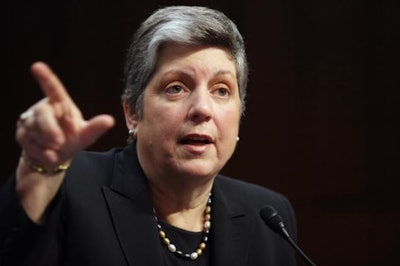DENVER — Colleges and universities across the nation should implement a wide range of wrap-around services for first-generation students, said Janet Napolitano, who leads the University of California, one of the largest public university systems in the country.
Of the 10 schools that comprise the UC system, about 42 percent of its overall population are first-generation students.
 UC President Janet Napolitano
UC President Janet Napolitano“We know that they benefit from academic advising, receiving support in terms of how to fill out the FAFSA and how to negotiate and navigate their way across campus,” said Napolitano, who made her remarks at the annual meeting of the GlobalMindED conference, which brings academicians, business and civic leaders together from across the globe to discuss strategies relating to first-generation students.
Napolitano said “buckets of related issues” impact first-generation students, and efforts to create a pipeline for these students should begin as early as middle school. She added that keeping college affordable has to be a top priority.
“If your family makes 80,000 a year or less, you pay no tuition or fees” at UC schools, said Napolitano. “Half of our students graduate with zero debt.”
She said families who earn between $80,000 and $150,000 a year qualify for the middle-class tax scholarship program, and the average UC student graduates with $20,000 in debt — about $10,000 less than the national average.
“We don’t want any young person not coming to the University of California because they can’t afford it,” said Napolitano. “I think public universities have a special role to play,” she said, adding that 30 percent of every tuition dollar goes directly toward financial aid.
Napolitano said she is concerned about the Trump administration’s crackdown on DACA students, many of whom are also first-generation and low-income students.
“I’m very familiar with DACA because I created DACA when I was Secretary of Homeland Security,” she said, adding that the university has filed a lawsuit against the U.S. Justice Department. “Congress needs to come together in a bipartisan way and put DACA in a statute so it’s there in a permanent way.”
Support for higher education, Napolitano said, should be a major priority for the nation.
“Higher education is a common good,” she said. “A well-educated person should have exposure to the humanities and social sciences and develop critical skills that will be key to helping to discern the difference between fake news and fact.”
States, including California, have dramatically slashed their support for public universities in the wake of the economic recession many years ago, and have never recovered. Napolitano said there is a need to look to philanthropy and the monetization of intellectual property to bring in additional revenue.
Jamal Eric Watson can be reached at [email protected] You can follow him on Twitter @jamalericwatson
















